- Home
- Arthur Conan Doyle
The Parasite: A Story Page 3
The Parasite: A Story Read online
Page 3
halfan hour or so. Science is so exacting that it is difficult to give asatisfying test, but I am convinced that this at least will be anaction which she would be most unlikely to do of her own free will.Forget any thing that she may have said, as she has really nothingwhatever to do with it, and will certainly not recollect any thingabout it. I write this note to shorten your anxiety, and to beg you toforgive me for the momentary unhappiness which my suggestion must havecaused you. "Yours faithfully; "HELEN PENCLOSA.
Really, when I had read the note, I was too relieved to be angry. Itwas a liberty. Certainly it was a very great liberty indeed on thepart of a lady whom I had only met once. But, after all, I hadchallenged her by my scepticism. It may have been, as she said, alittle difficult to devise a test which would satisfy me.
And she had done that. There could be no question at all upon thepoint. For me hypnotic suggestion was finally established. It tookits place from now onward as one of the facts of life. That Agatha,who of all women of my acquaintance has the best balanced mind, hadbeen reduced to a condition of automatism appeared to be certain. Aperson at a distance had worked her as an engineer on the shore mightguide a Brennan torpedo. A second soul had stepped in, as it were, hadpushed her own aside, and had seized her nervous mechanism, saying: "Iwill work this for half an hour." And Agatha must have beenunconscious as she came and as she returned. Could she make her way insafety through the streets in such a state? I put on my hat andhurried round to see if all was well with her.
Yes. She was at home. I was shown into the drawing-room and found hersitting with a book upon her lap.
"You are an early visitor, Austin," said she, smiling.
"And you have been an even earlier one," I answered.
She looked puzzled. "What do you mean?" she asked.
"You have not been out to-day?"
"No, certainly not."
"Agatha," said I seriously, "would you mind telling me exactly what youhave done this morning?"
She laughed at my earnestness.
"You've got on your professional look, Austin. See what comes of beingengaged to a man of science. However, I will tell you, though I can'timagine what you want to know for. I got up at eight. I breakfastedat half-past. I came into this room at ten minutes past nine and beganto read the 'Memoirs of Mme. de Remusat.' In a few minutes I did theFrench lady the bad compliment of dropping to sleep over her pages, andI did you, sir, the very flattering one of dreaming about you. It isonly a few minutes since I woke up."
"And found yourself where you had been before?"
"Why, where else should I find myself?"
"Would you mind telling me, Agatha, what it was that you dreamed aboutme? It really is not mere curiosity on my part."
"I merely had a vague impression that you came into it. I cannotrecall any thing definite."
"If you have not been out to-day, Agatha, how is it that your shoes aredusty?"
A pained look came over her face.
"Really, Austin, I do not know what is the matter with you thismorning. One would almost think that you doubted my word. If my bootsare dusty, it must be, of course, that I have put on a pair which themaid had not cleaned."
It was perfectly evident that she knew nothing whatever about thematter, and I reflected that, after all, perhaps it was better that Ishould not enlighten her. It might frighten her, and could serve nogood purpose that I could see. I said no more about it, therefore, andleft shortly afterward to give my lecture.
But I am immensely impressed. My horizon of scientific possibilitieshas suddenly been enormously extended. I no longer wonder at Wilson'sdemonic energy and enthusiasm. Who would not work hard who had a vastvirgin field ready to his hand? Why, I have known the novel shape of anucleolus, or a trifling peculiarity of striped muscular fibre seenunder a 300-diameter lens, fill me with exultation. How petty do suchresearches seem when compared with this one which strikes at the veryroots of life and the nature of the soul! I had always looked uponspirit as a product of matter. The brain, I thought, secreted themind, as the liver does the bile. But how can this be when I see mindworking from a distance and playing upon matter as a musician mightupon a violin? The body does not give rise to the soul, then, but israther the rough instrument by which the spirit manifests itself. Thewindmill does not give rise to the wind, but only indicates it. It wasopposed to my whole habit of thought, and yet it was undeniablypossible and worthy of investigation.
And why should I not investigate it? I see that under yesterday's dateI said: "If I could see something positive and objective, I might betempted to approach it from the physiological aspect." Well, I havegot my test. I shall be as good as my word. The investigation would,I am sure, be of immense interest. Some of my colleagues might lookaskance at it, for science is full of unreasoning prejudices, but ifWilson has the courage of his convictions, I can afford to have italso. I shall go to him to-morrow morning--to him and to MissPenclosa. If she can show us so much, it is probable that she can showus more.
Really, when I had read the note, I was too relieved to be angry. Itwas a liberty. Certainly it was a very great liberty indeed on thepart of a lady whom I had only met once. But, after all, I hadchallenged her by my scepticism. It may have been, as she said, alittle difficult to devise a test which would satisfy me.
And she had done that. There could be no question at all upon thepoint. For me hypnotic suggestion was finally established. It tookits place from now onward as one of the facts of life. That Agatha,who of all women of my acquaintance has the best balanced mind, hadbeen reduced to a condition of automatism appeared to be certain. Aperson at a distance had worked her as an engineer on the shore mightguide a Brennan torpedo. A second soul had stepped in, as it were, hadpushed her own aside, and had seized her nervous mechanism, saying: "Iwill work this for half an hour." And Agatha must have beenunconscious as she came and as she returned. Could she make her way insafety through the streets in such a state? I put on my hat andhurried round to see if all was well with her.
Yes. She was at home. I was shown into the drawing-room and found hersitting with a book upon her lap.
"You are an early visitor, Austin," said she, smiling.
"And you have been an even earlier one," I answered.
She looked puzzled. "What do you mean?" she asked.
"You have not been out to-day?"
"No, certainly not."
"Agatha," said I seriously, "would you mind telling me exactly what youhave done this morning?"
She laughed at my earnestness.
"You've got on your professional look, Austin. See what comes of beingengaged to a man of science. However, I will tell you, though I can'timagine what you want to know for. I got up at eight. I breakfastedat half-past. I came into this room at ten minutes past nine and beganto read the 'Memoirs of Mme. de Remusat.' In a few minutes I did theFrench lady the bad compliment of dropping to sleep over her pages, andI did you, sir, the very flattering one of dreaming about you. It isonly a few minutes since I woke up."
"And found yourself where you had been before?"
"Why, where else should I find myself?"
"Would you mind telling me, Agatha, what it was that you dreamed aboutme? It really is not mere curiosity on my part."
"I merely had a vague impression that you came into it. I cannotrecall any thing definite."
"If you have not been out to-day, Agatha, how is it that your shoes aredusty?"
A pained look came over her face.
"Really, Austin, I do not know what is the matter with you thismorning. One would almost think that you doubted my word. If my bootsare dusty, it must be, of course, that I have put on a pair which themaid had not cleaned."
It was perfectly evident that she knew nothing whatever about thematter, and I reflected that, after all, perhaps it was better that Ishould not enlighten her. It might frighten her, and could serve nogood purpose that I could see. I said no more about it, therefore, andleft shortly afterward to give my lecture.
But I am immensely impressed. My horizon of scientific possibilitieshas suddenly been enormously extended. I no longer wonder at Wilson'sdemonic energy and enthusiasm. Who would not work hard who had a vastvirgin field ready to his hand? Why, I have known the novel shape of anucleolus, or a trifling peculiarity of striped muscular fibre seenunder a 300-diameter lens, fill me with exultation. How petty do suchresearches seem when compared with this one which strikes at the veryroots of life and the nature of the soul! I had always looked uponspirit as a product of matter. The brain, I thought, secreted themind, as the liver does the bile. But how can this be when I see mindworking from a distance and playing upon matter as a musician mightupon a violin? The body does not give rise to the soul, then, but israther the rough instrument by which the spirit manifests itself. Thewindmill does not give rise to the wind, but only indicates it. It wasopposed to my whole habit of thought, and yet it was undeniablypossible and worthy of investigation.
And why should I not investigate it? I see that under yesterday's dateI said: "If I could see something positive and objective, I might betempted to approach it from the physiological aspect." Well, I havegot my test. I shall be as good as my word. The investigation would,I am sure, be of immense interest. Some of my colleagues might lookaskance at it, for science is full of unreasoning prejudices, but ifWilson has the courage of his convictions, I can afford to have italso. I shall go to him to-morrow morning--to him and to MissPenclosa. If she can show us so much, it is probable that she can showus more.

 The Lost World
The Lost World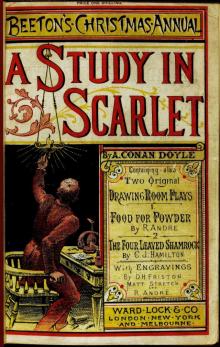 A Study in Scarlet
A Study in Scarlet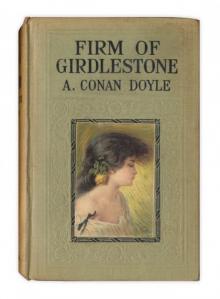 The Firm of Girdlestone
The Firm of Girdlestone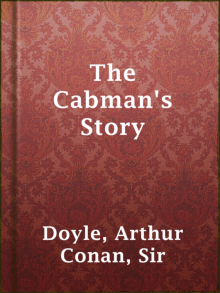 The Cabman's Story
The Cabman's Story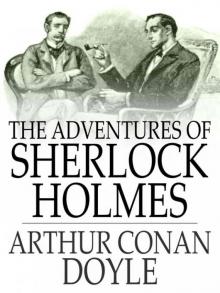 The Adventures of Sherlock Holmes
The Adventures of Sherlock Holmes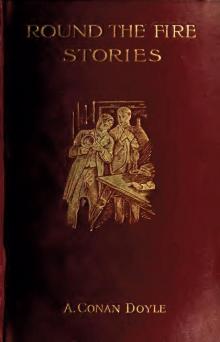 Round the Fire Stories
Round the Fire Stories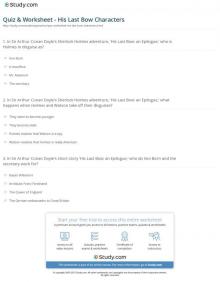 His Last Bow: An Epilogue of Sherlock Holmes
His Last Bow: An Epilogue of Sherlock Holmes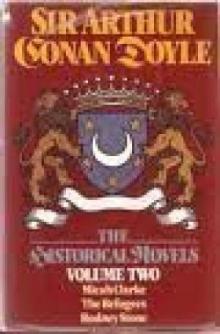 Micah Clarke
Micah Clarke The Exploits of Brigadier Gerard
The Exploits of Brigadier Gerard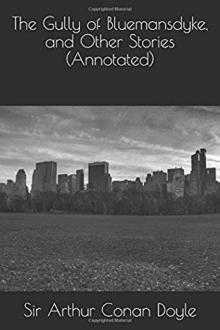 The Gully of Bluemansdyke, and Other stories
The Gully of Bluemansdyke, and Other stories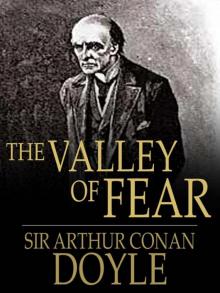 The Valley of Fear
The Valley of Fear The Last of the Legions and Other Tales of Long Ago
The Last of the Legions and Other Tales of Long Ago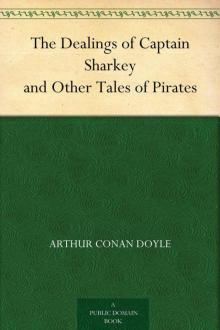 The Dealings of Captain Sharkey, and Other Tales of Pirates
The Dealings of Captain Sharkey, and Other Tales of Pirates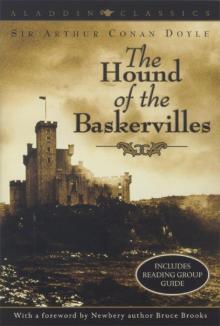 The Hound of the Baskervilles
The Hound of the Baskervilles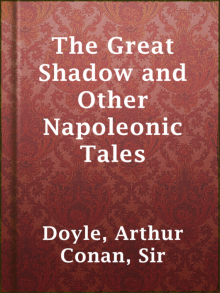 The Great Shadow and Other Napoleonic Tales
The Great Shadow and Other Napoleonic Tales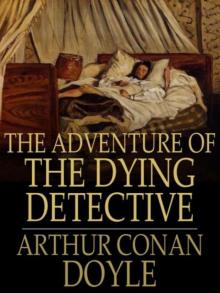 The Adventure of the Dying Detective
The Adventure of the Dying Detective The Man from Archangel, and Other Tales of Adventure
The Man from Archangel, and Other Tales of Adventure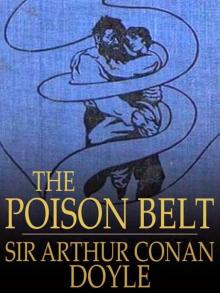 The Poison Belt
The Poison Belt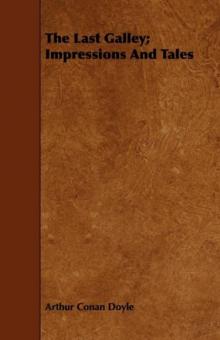 The Last Galley; Impressions and Tales
The Last Galley; Impressions and Tales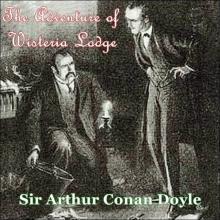 The Adventure of Wisteria Lodge
The Adventure of Wisteria Lodge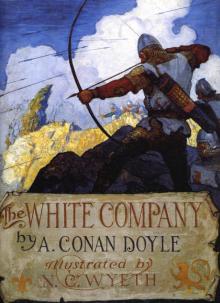 The White Company
The White Company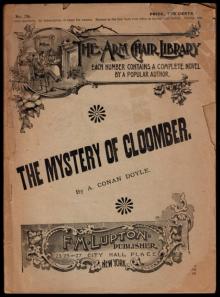 The Mystery of Cloomber
The Mystery of Cloomber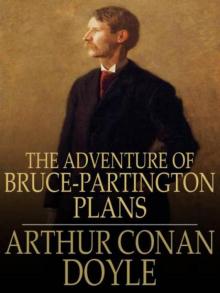 The Adventure of the Bruce-Partington Plans
The Adventure of the Bruce-Partington Plans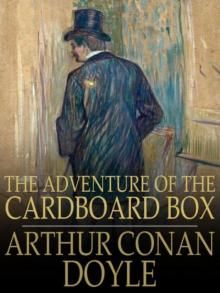 The Adventure of the Cardboard Box
The Adventure of the Cardboard Box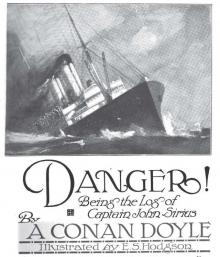 Danger! and Other Stories
Danger! and Other Stories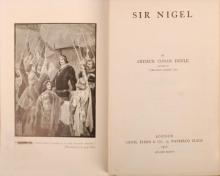 Sir Nigel
Sir Nigel The Return of Sherlock Holmes
The Return of Sherlock Holmes The Adventure of the Devil's Foot
The Adventure of the Devil's Foot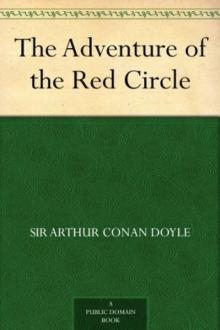 The Adventure of the Red Circle
The Adventure of the Red Circle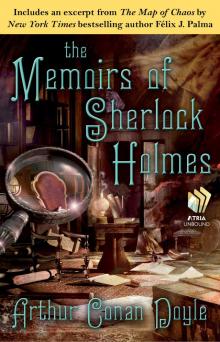 The Memoirs of Sherlock Holmes
The Memoirs of Sherlock Holmes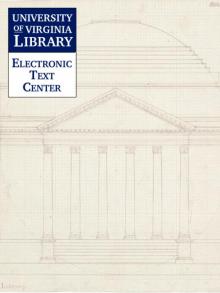 The Adventure of the Yellow Face
The Adventure of the Yellow Face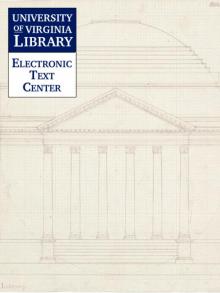 The Adventure of the Norwood Builder
The Adventure of the Norwood Builder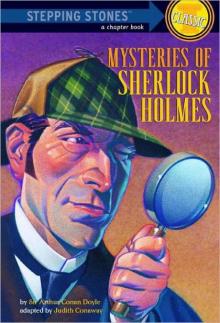 Mysteries of Sherlock Holmes
Mysteries of Sherlock Holmes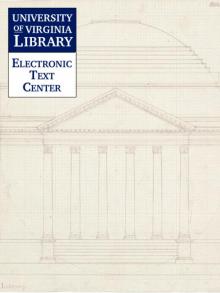 The Adventure of the Missing Three-Quarter
The Adventure of the Missing Three-Quarter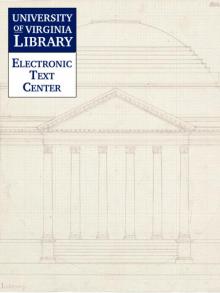 The Adventure of the Final Problem
The Adventure of the Final Problem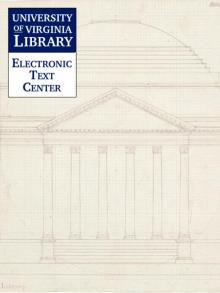 A Scandal in Bohemia
A Scandal in Bohemia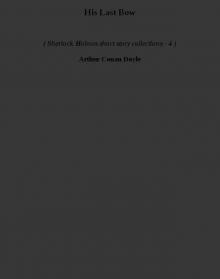 His Last Bow shssc-4
His Last Bow shssc-4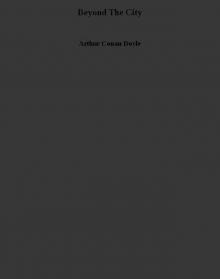 Beyond The City
Beyond The City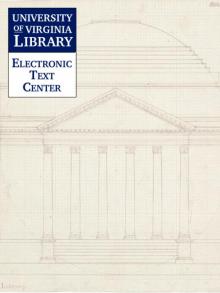 The Adventure of the Gloria Scott
The Adventure of the Gloria Scott The Parasite
The Parasite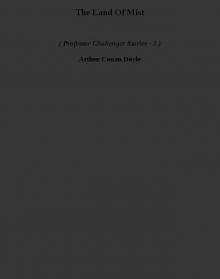 The Land Of Mist pcs-3
The Land Of Mist pcs-3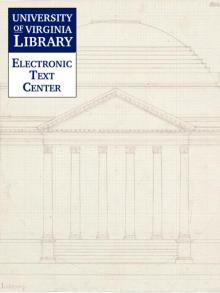 The Adventure of the Musgrave Ritual
The Adventure of the Musgrave Ritual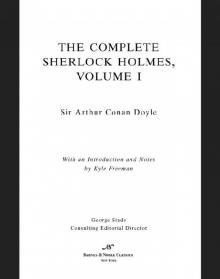 The Complete Sherlock Holmes, Volume I (Barnes & Noble Classics Series)
The Complete Sherlock Holmes, Volume I (Barnes & Noble Classics Series)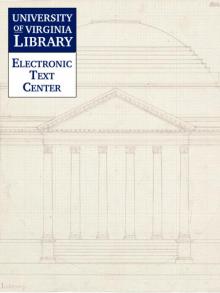 The Adventure of the Stockbroker's Clerk
The Adventure of the Stockbroker's Clerk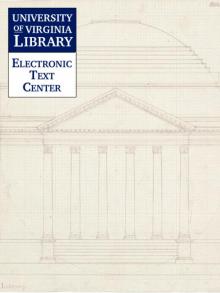 The Adventure of the Copper Beeches
The Adventure of the Copper Beeches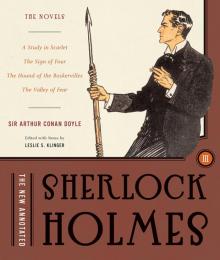 The New Annotated Sherlock Holmes
The New Annotated Sherlock Holmes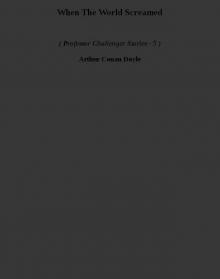 When The World Screamed pcs-5
When The World Screamed pcs-5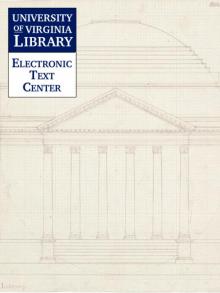 The Adventure of the Six Napoleons
The Adventure of the Six Napoleons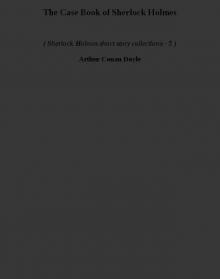 The Case Book of Sherlock Holmes shssc-5
The Case Book of Sherlock Holmes shssc-5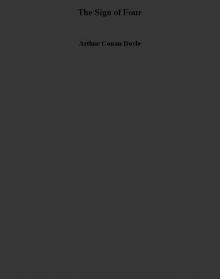 The Sign of Four
The Sign of Four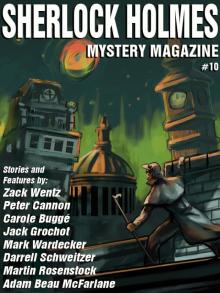 Sherlock Holmes Mystery Magazine #10
Sherlock Holmes Mystery Magazine #10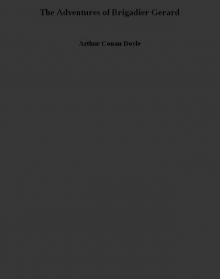 The Adventures of Brigadier Gerard
The Adventures of Brigadier Gerard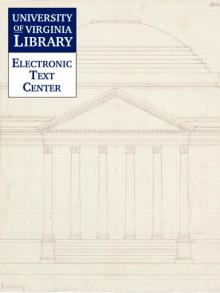 The Adventure of the Second Stain
The Adventure of the Second Stain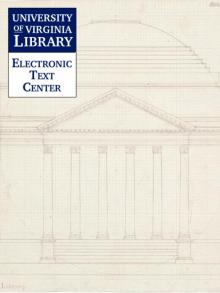 The Adventure of the Engineer's Thumb
The Adventure of the Engineer's Thumb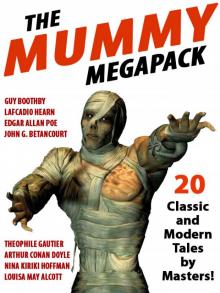 The Mummy Megapack
The Mummy Megapack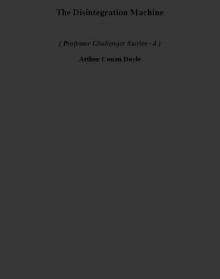 The Disintegration Machine pcs-4
The Disintegration Machine pcs-4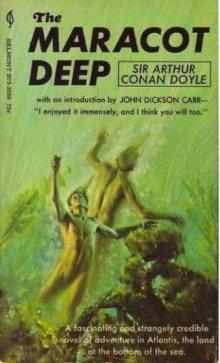 The Maracot Deep
The Maracot Deep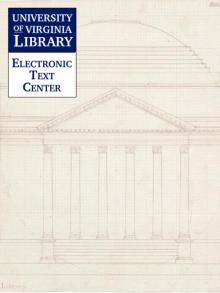 The Five Orange Pips
The Five Orange Pips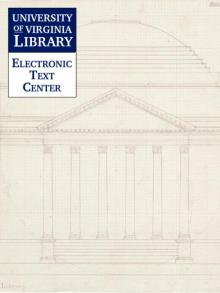 The Adventure of the Crooked Man
The Adventure of the Crooked Man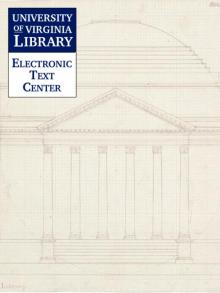 The Adventure of the Blue Carbuncle
The Adventure of the Blue Carbuncle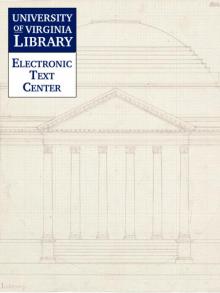 The Adventure of Silver Blaze
The Adventure of Silver Blaze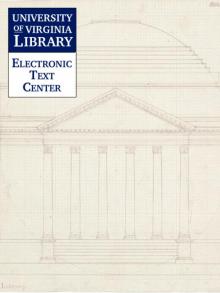 The Adventure of the Solitary Cyclist
The Adventure of the Solitary Cyclist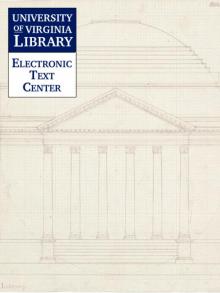 The Adventure of the Naval Treaty
The Adventure of the Naval Treaty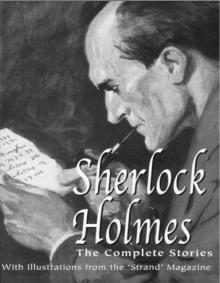 Sherlock Holmes. The Complete Stories
Sherlock Holmes. The Complete Stories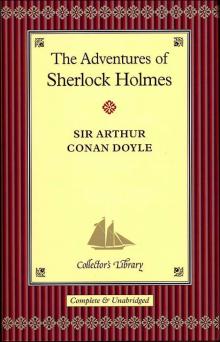 The Adventures of Sherlock Holmes (sherlock holmes)
The Adventures of Sherlock Holmes (sherlock holmes)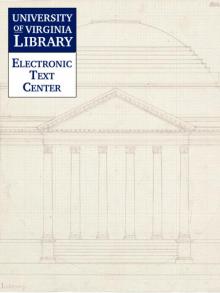 The Adventure of the Empty House
The Adventure of the Empty House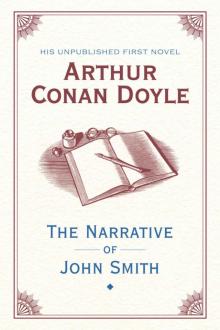 The Narrative of John Smith
The Narrative of John Smith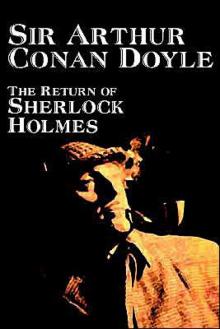 The Return of Sherlock Holmes (sherlock holmes)
The Return of Sherlock Holmes (sherlock holmes)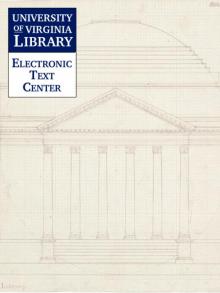 The New Revelation
The New Revelation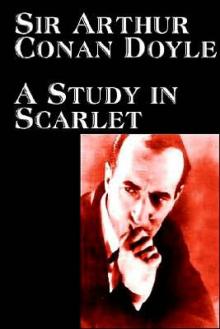 A Study in Scarlet (sherlock holmes)
A Study in Scarlet (sherlock holmes)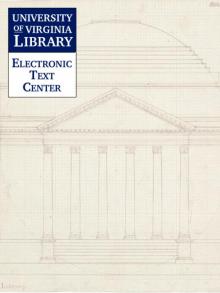 The Vital Message
The Vital Message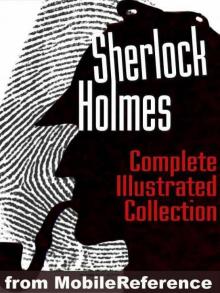 Sherlock Holmes Complete Collection
Sherlock Holmes Complete Collection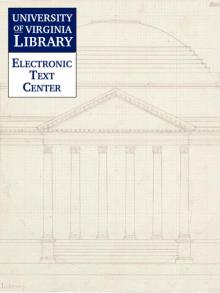 Round the Red Lamp
Round the Red Lamp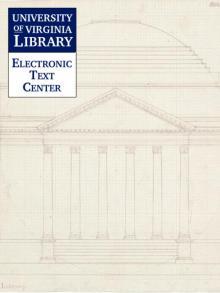 The Boscombe Valley Mystery
The Boscombe Valley Mystery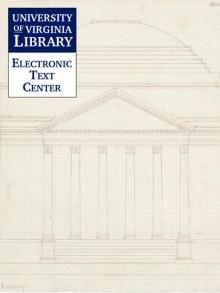 The Adventure of the Beryl Coronet
The Adventure of the Beryl Coronet The Refugees
The Refugees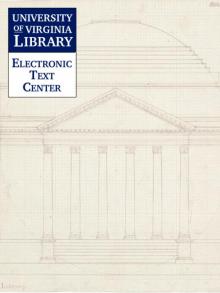 The Adventure of the Three Students.
The Adventure of the Three Students.